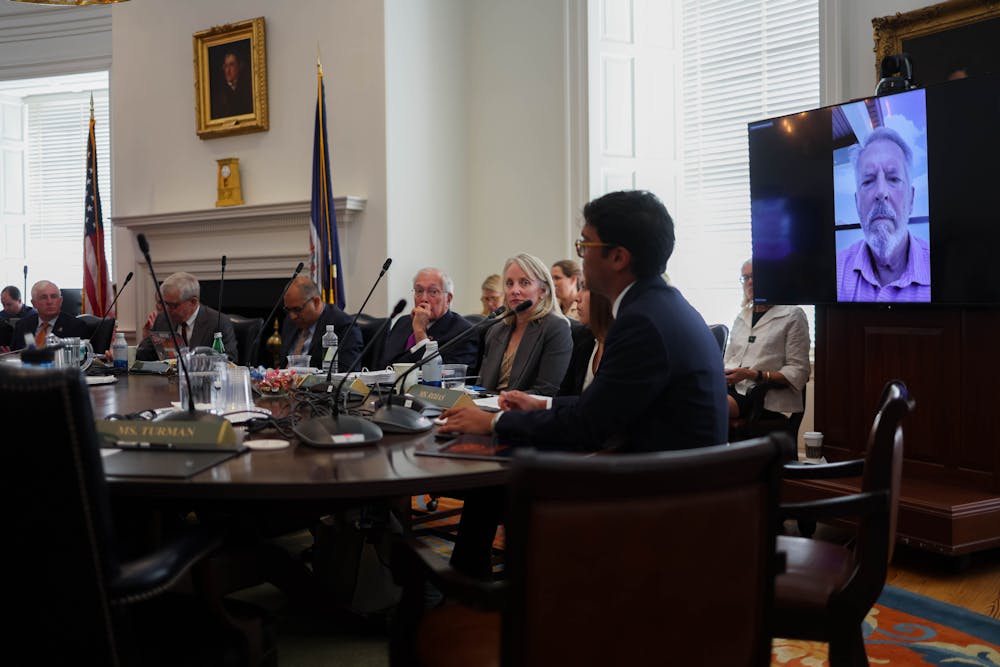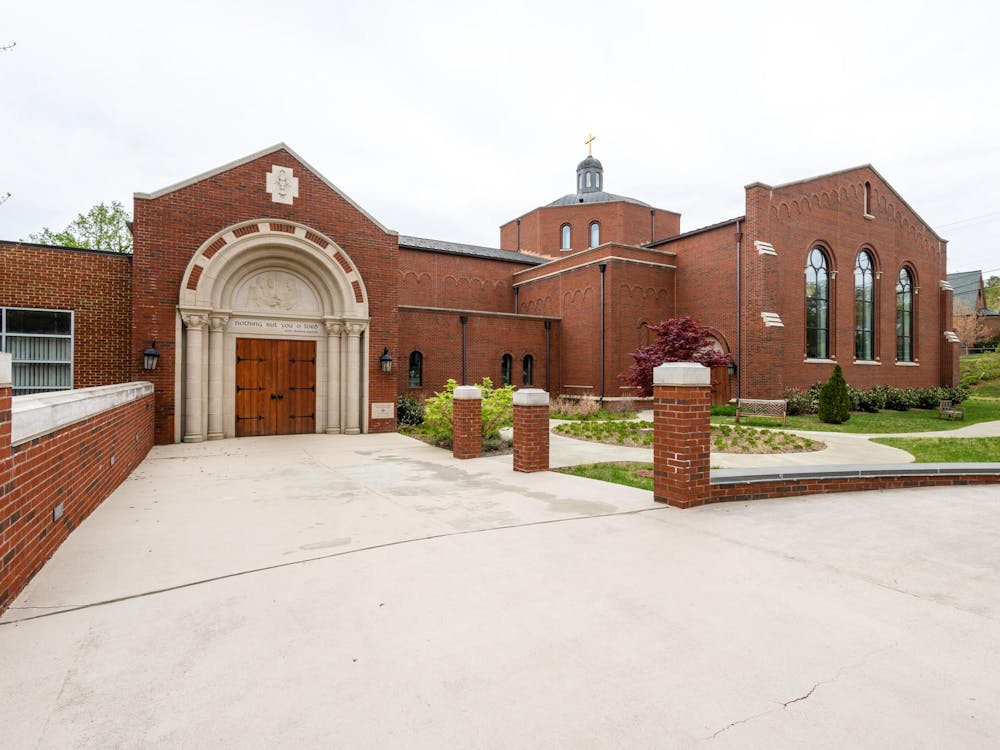The Board of Visitors’ Finance Committee provided updates on the fiscal year 2024 budget and approved amendments to the 2024-2026 Biennial Budget and the 2023 State Six-Year Institutional Plans for the University and the College at Wise during the meeting Thursday. The Board also discussed improved safety measures on the Corner and tuition rates ahead of the next Board meeting in December.
As part of the 2024 budget, the University will authorize a 2 percent base salary raise for all employees as mandated by Governor Glenn Youngkin. The raise will go into effect in December. Chief Operation Officer J.J. Davis said that while it is “good news” to provide pay raises for employees, there are challenges involved with the timing of the amendment and resource constraints.
“We are working right now to think about that differential in funding and how we're going to work through that — not just for this existing fiscal year, but to build it back for next year,” Davis said.
During a Board meeting in August, Davis said that the University faces a so-called “war for talent” with high vacancy rates among faculty and staff and other universities offering more competitive salaries. Provost Ian Baucom reaffirmed the presence of this “war for talent” during a Board meeting in June.
The budget plan also addressed a competitive fund for the recruitment and retention of students eligible for Pell Grants, a form of federal financial aid available to undergraduates in need. Other approved changes included the raising of capital for a new Center for the Arts at the Emmet-Ivy corridor.
The Board also approved a working draft of the Six-Year Plan for the University, a Commonwealth-mandated document that outlines the University’s institutional academic, financial and enrollment plans. There are three main initiatives in the University’s plan — SuccessU.Va., Pathways to Research Preeminence and the Bachelor’s Completion and Certificate Program/Broadening Our Horizons.
SuccessU.Va. encompasses the All Virginia Pilot Program, a plan to increase applications from the 40 schools in Virginia with the lowest rate of applications to the University. The aim of the program is to encourage and assist students with applying to the University, including answering questions about affordability.
“[SuccessU.Va….is] doing an incredible initiative here about how [we’re] think about recruiting and attracting more Virginians to U.Va.,” Davis said. “There’s a long, long, exciting set of initiatives here.”
SuccessU.Va. also includes initiatives to expand the Threat Assessment Team, which aims to prevent violence on Grounds. The TAT has requested an additional $182,365 for the next fiscal year, citing a 75 percent increase in caseload over the past two years.
The last major initiative of SuccessU.Va. is to improve mental health resources on Grounds by expanding case management systems and increasing the number of spaces offering mental health services on Grounds.
Pathways to Research Preeminence includes the further development of the Institute of Biotechnology, more investments in research infrastructure and research focused on societal issues. Bachelor’s Completion and Certificate Program/Broadening Our Horizons focuses on providing working adults better access to in-person and online learning opportunities and certificate programs at the University.
The final draft of the State Six-Year plan is due to the State Council of Higher Education for Virginia Oct. 15 — before then, the University will receive feedback from a group of state individuals which include the Secretary of Education and the Director of the SCHEV.
Additionally, the Committee approved amendments to the Biennial Budget, which included $111 million for Institute of Biotechnology recruitment in 2025, a cumulative $16 million for Workforce Development and Internships and $2.9 million to expand mental health services offered by Student Health and Wellness.
Davis also spoke on efforts to improve security on the Corner, including the addition of surveillance cameras, exterior lights and more police officers. She said that University leadership is working to make the University Police Department’s substation located on the Corner more accessible.
Board member Bert Ellis, who Davis said has pursued safety on the Corner with determination, said that the store owners have been appreciative of the changes.
“The Corner is absolutely essential to the social experience for the students at the University,” Ellis said. “Everything we can do to make it safe [and] accessible is awesome.”
The Committee also discussed tuition rates — no decisions were made in regards to tuition for the upcoming year. Instead, the Finance Subcommittee on Tuition recommended that the Committee discuss tuition during October, host a public meeting in November and then present their recommendations to the Board in December.
The Subcommittee, created in 2021, recommends that the University’s tuition levels be set every two years. During the June meetings, the Board reduced tuition increases for in-state undergraduate students from 3.7 percent to 3 percent, at the request of the Virginia Secretary of Education.
Davis said that no Virginian is able to attend a top-50 school for a lower price than the tuition offered by the University. Tuition and fees for an in-state undergraduate student in the College cost $18,816 for the 2023-24 school year — “additional fees” including housing, food and other miscellaneous equipment bring the total cost for an in-state first-year student to $37,828.
“In terms of [return on investment] and affordability, we are the best deal in town,” Davis said.
The Finance Committee will convene again during the December Board meetings.







